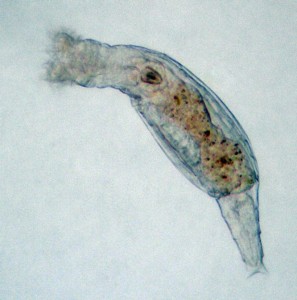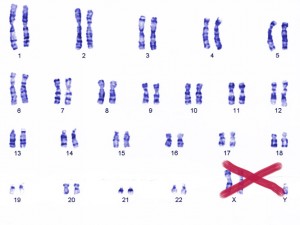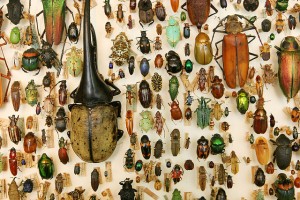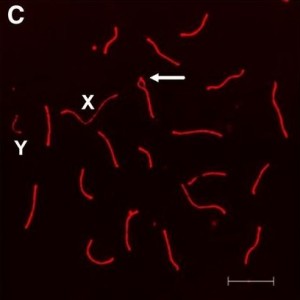Enter your address to receive notifications about new posts to your email.
Articles tagged Chromosomes
(38 results)
-
New Faculty Profile: Meleah Hickman
New Faculty Profiles showcase GSA members who are establishing their first independent labs. If you’d like to be considered for a profile, please complete this form on the GSA website. Meleah Hickman Assistant Professor, Department of Biology (since 2014) Emory University Lab website @meleahhickman Research program: My lab investigates how eukaryotic pathogens generate…
-
The Secret Sex Lives of the Bdelloid Rotifers
Bdelloid rotifers have been veiled in mystery for decades. Despite extensive studies of this class of tiny freshwater invertebrates, no one has observed any trace of sex: no proven males, hermaphrodites, mating, or meiosis. Unlike other asexual organisms, which tend to be short-lived in evolutionary history, the apparently asexual bdelloid rotifers have managed to persist…
-
ASHG Meeting Report: The X-factor in complex disease
One of the major risk factors for autoimmune diseases is being born with two copies of the X chromosome. For example, women—who typically carry two Xs—face around ten times the risk of lupus, while men with lupus are around 15 times more likely than the general population to carry two Xs and a Y (Klinefelter…
-
The Fragile Y
Y chromosomes have come and gone many times during evolutionary history. Take beetles. When Heath Blackmon and Jeff Demuth modeled sex chromosome evolution in more than a thousand beetle species, they found the Y chromosome had independently evolved around 65 times in the suborder Adephaga alone. And as fast as this group evolved new Y chromosomes,…
-
Aging Males and Aneuploidy
Do aging males make poorer quality sperm? Older mothers face a well-established risk of producing eggs with chromosome abnormalities, but it is less clear how age affects meiosis in males. In the February issue of GENETICS, Vrooman et al. investigated chromosome dynamics during spermatogenesis in mice of different ages. They found that meiotic errors increased…





